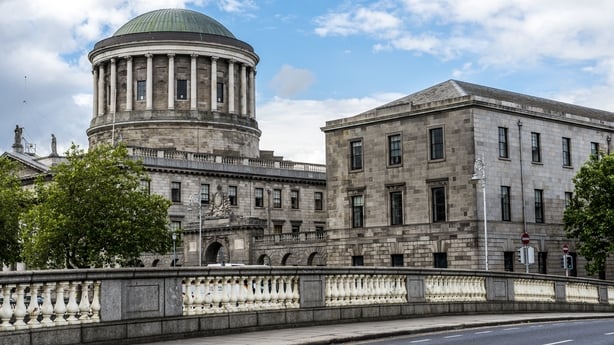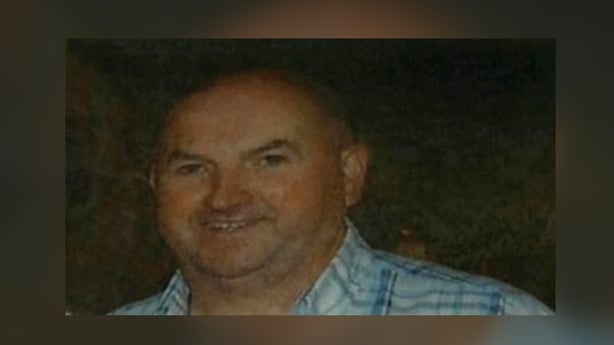The Supreme Court will rule later on an appeal by Tipperary farmer Patrick Quirke against his conviction for the murder in 2011 of Bobby Ryan – a DJ known as Mr Moonlight.
On the second and final day of the appeal, the court was told gardaí are not legally required to outline exactly what evidence they suspect might be found on a premises when applying for a search warrant.
Senior Counsel Michael Bowman told the seven-judge Supreme Court that gardaí must, when applying for a search warrant, satisfy a judge that they have a reasonable suspicion that an offence has been committed and that evidence may be found. However there was no legal requirement to outline exactly what that evidence might be, he said.
In reply to questions from a number of the judges as to whether the seizure and search of a computer might require separate authorisation, given the nature of the information to be found on a computer, Mr Bowman said no such separate authorisation was required.
Asked how a judge could apply a proportionality test, to balance the rights of the State against the privacy rights of an individual, when making a decision on whether or not to grant a warrant if they did not have the information, Mr Bowman said it was open to a judge to engage with the garda applicant and to ask any necessary questions.
Lawyers for Patrick Quirke say the warrant used to search his home and seize a number of items was invalid as gardaí did not tell the district court judge they planned to seize a computer. The evidence formed a key part of the prosecution case against Mr Quirke as it was found to have been used for internet searches on the rate of decomposition of human remains and the limitations of forensic DNA.
Asked how important it was to the case that someone had "looked up dead bodies", Mr Bowman said the context of the internet searches was "everything".
Mr Justice Charleton said "lots of people" might have an interest in decomposition of bodies, "which might sound like a strange thing but we are all going to die at some stage and either be burned or decompose". Mr Bowman replied that Mr Quirke was questioned about the searches and referenced the tragic passing of his son but those searches could not have been related to his son's death as they predated it.

The court was told the computer was searched using a keyword search which required certain software but also required an amount of "trawling" to extract relevant evidence. While irrelevant information may be seen by gardaí during this exercise it was no different from searching thousands of physical documents and sorting through them to find those relevant to the investigation, Mr Bowman said.
However Ms Justice Iseult O’Malley said searching through physical documents did not mean gardaí might also look through a personal private photo album.
The court was told audio messages of an intimate nature with the voices of two different women, one of whom was Mr Quirke’s wife, were found during a trawling exercise on the computer.
Mr Bowman said it was not possible to target a search on a computer for only relevant information because it may be stored as code. Limiting a search in this way might cause investigators to miss something, he said.
He said the legitimacy of the seeking was the issue and whether or not gardaí were trawling without an appropriate motive. He said a blank page was also taken away but later found to contain information by using a test known as ESDA, which can detect indentations from writing on a page.
Asked by Mr Justice Seamus Woulfe if there was a recognition that information not relevant to an investigation may be viewed by gardaí, Mr Bowman said that was a consequence of any search. However, he said "those who commit offences are going to be moved to try get away with it and if that leads to misidentifying or hiding items, those items cannot be out of bounds and it cannot be the case that gardaí were shut down from (examining) that".
There was no specific permission required to seize and search a computer as distinct from other items, Mr Bowman added. Asked if the warrant, once issued, covered every part of a search, Mr Bowman said gardaí were entitled to seize anything which they believe was evidence of or related to a crime, even if it is a separate crime and it would "strike against logic" if they could not.

Bobby Ryan's remains were found in a disused underground tank on Mary Lowry’s farm almost two years after he went missing. He had been in a relationship with Ms Lowry and was last seen alive as he left her home to go to work early on 3 June, 2011.
The prosecution said Patrick Quirke staged the discovery of the body as he was about to give up his lease on the farm and feared he would be found out.
Mr Quirke is serving a life sentence imposed after his conviction in 2019 after a 15-week trial. He had denied any involvement in the murder.
The trial in 2019 heard he murdered his love rival Mr Ryan - a DJ known as Mr Moonlight - so he could rekindle an affair with farm owner Mary Lowry.
In November last year, the court of appeal dismissed Mr Quirke’s appeal against conviction on all 52 grounds.
The Supreme Court agreed to hear an appeal in the case because there are two matters of general public importance involved which may arise in other criminal trials and would benefit from clarification.
The issues relate to the validity of a search warrant and the DPP’s discretion to call witnesses at trial.







